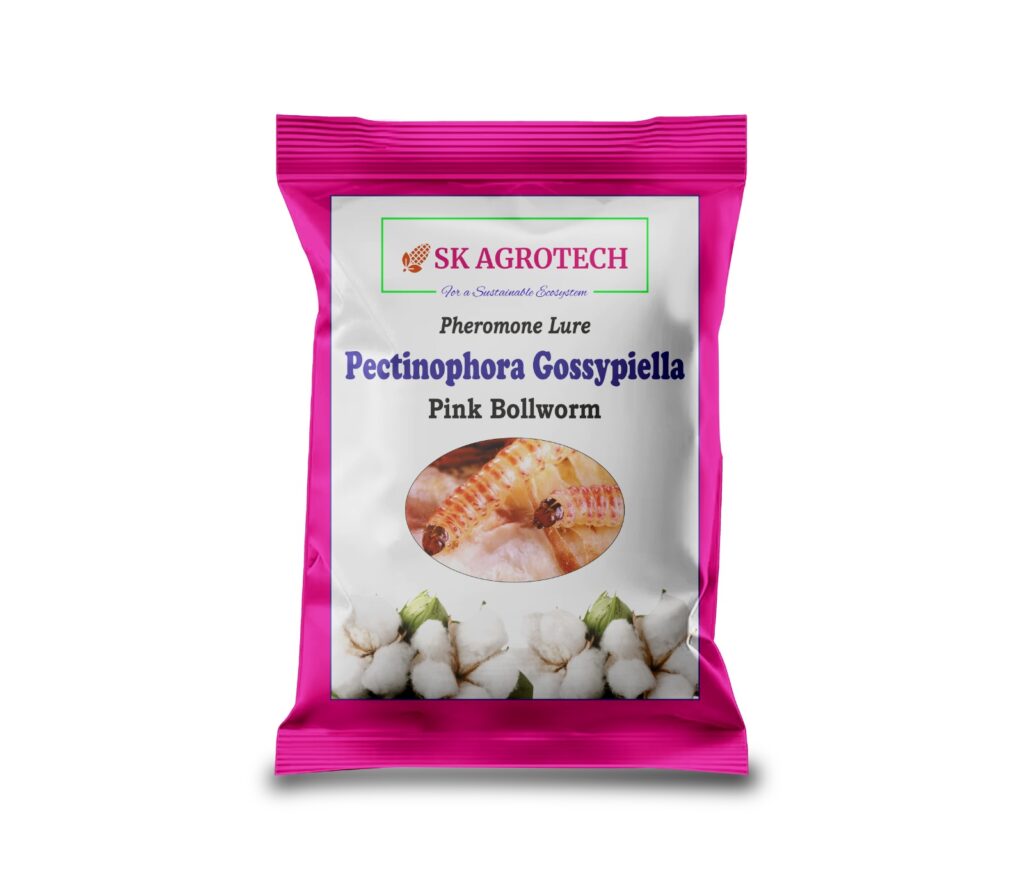Products

Pink Bollworm (Pectinophora gossypiella) pheromone lure
The Pink Bollworm is one of the most devastating pests of cotton crops in India and globally. It bores into developing bolls and feeds internally, causing boll rotting, poor lint quality, and significant yield losses. Its hidden feeding behavior makes it difficult to control with insecticides, which is why pheromone traps and other Integrated Pest Management (IPM) methods are essential for early detection and population management.
Host Crop:
Cotton (Gossypium spp.) – Primary host
Damage Symptoms:
Small boreholes on cotton bolls with no external excreta (clean entry)
Rosetted flowers or “rosetting” in young shoots
Premature boll opening
Internal feeding on seeds, leading to lint staining
Reduced seed cotton weight and poor fiber quality
👉 Yield losses can reach 20–30% or more if the infestation goes unchecked, especially in Bt cotton fields with resistance buildup.
Lifecycle of Pink Bollworm:
Eggs laid on cotton flowers, bolls, or under calyx
Larvae bore into bolls and feed on seeds
Pupation inside plant debris or soil
Adults are small greyish moths with fringed wings
🕒 One generation completes in 25–30 days, and multiple generations occur during the crop season.
Monitoring & Control Using Pheromone Traps:
✅ Recommended Trap Types:
Funnel Trap
Sticky Trap with Lure Holder
Wota-T Trap (for dry monitoring)
✅ Lure Type:
Pectinophora gossypiella sex pheromone lure
✅ Trap Density:
5–8 traps per acre for monitoring
Install at 1–1.5 meters height in the cotton canopy
🟢 Traps are highly effective for early detection, mating disruption, and reducing male populations to slow down reproduction.
Other IPM Strategies:
🌱 Cultural Control:
Early sowing and synchronized planting
Removal and destruction of infested bolls and crop residues
Deep summer ploughing to kill pupae
Avoid ratoon cropping and late harvesting
Pheromonetrap.in Traps for Pink Bollworm Control?
Precision-targeted lures for Pectinophora gossypiella
Durable, reusable traps for field conditions
Long lure longevity (30–45 days)
Supports sustainable, eco-friendly farming
Compatible with organic and IPM practices
